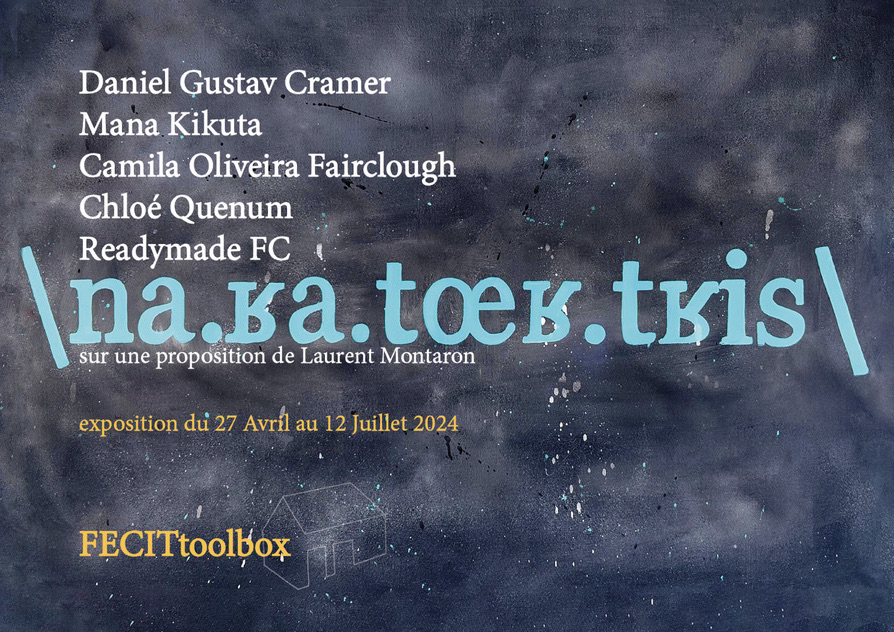na.ʁa.tʁ.tʁis
27th April 2024 - 12th July 2024

\na.ʁa.tʁ.tʁis\
Group show based on a proposal by Laurent MontaronDaniel with Gustav Cramer, Mana Kikuta, Camila Oliveira Fairclough, Chloé Quenum, Readymade FC, Centre d'art FECITtoolbox
11 Rue de Reims, 51360 Val de Vesle
From 27 April to 12 July 2024
Opening on 27 April starting from 6:30 PM
The title of the exhibition \na.ʁa.tʁ.tʁis\ is directly inspired by an essay by Walter Benjamin, whose German title Der Erzähler is generally translated as The Storyteller, but which Walter Benjamin himself translated, when he provided a French version in 1939, as Le Narrateur, réflexions à propos de l'uvre de Nicolas Leskov. In this emblematic text of modernity, written between 1928 and 1935, he develops the idea that after the war of 1914-1918, the lived experience of the trenches faced the impossibility of its transmission; he saw it more broadly as a crisis of storytelling. He also clearly distinguishes within the narrative function the place of the other's experience, which allows the narrative to fully enter into each individual's personal history, distinguishing it from communication that conveys information in a disembodied form. The exhibition questions this notion of narrative. Although the issue, from certain perspectives, may have seemed outdated until now, it takes on new meaning in light of recent events in contemporary history. Upon closer examination, one tends to respond to injunctions and in various forms, to adhere to narratives that are constructed outside of facts, thus sidestepping the necessity for a form of truth.Thus, the need to adhere to an objective truth is relegated to the background. It is the nature of narrative to construct fiction, when it is not a matter of historical reinterpretation. Largely inaugurated with the concept of post-truth and in the continuity of the establishment by the market of storytelling, the notions of national narrative, historical narratives, and narratives largely supported by alternative facts or simply the construction of an identity, refer to emblematic texts that narrate distant wanderings that have reached us but whose origins are both foundational and hypothetical.The tragic consequences, the magnitude of which can be measured in current events, reshuffle the cards of the world and the certainties based on hearsay. They corroborate beliefs rather than a necessary quest for knowledge.
Convictions are enemies of truth more dangerous than lies.
Friedrich Nietzsche - Human, All Too Human; Aphorisms, 483 (1878)